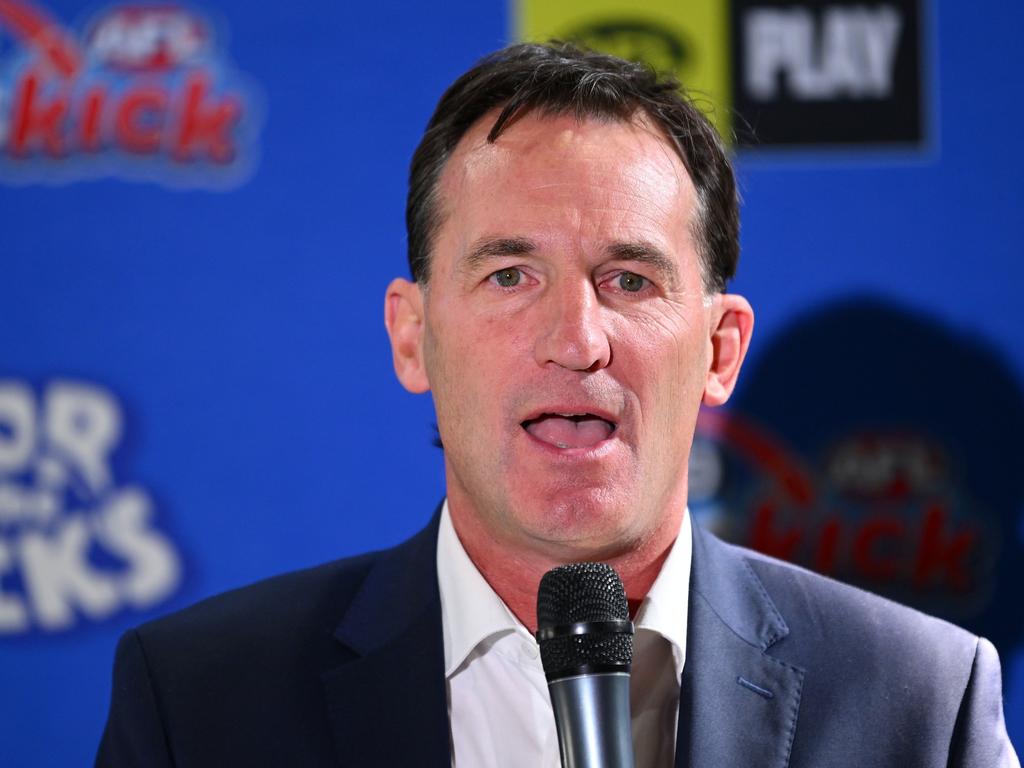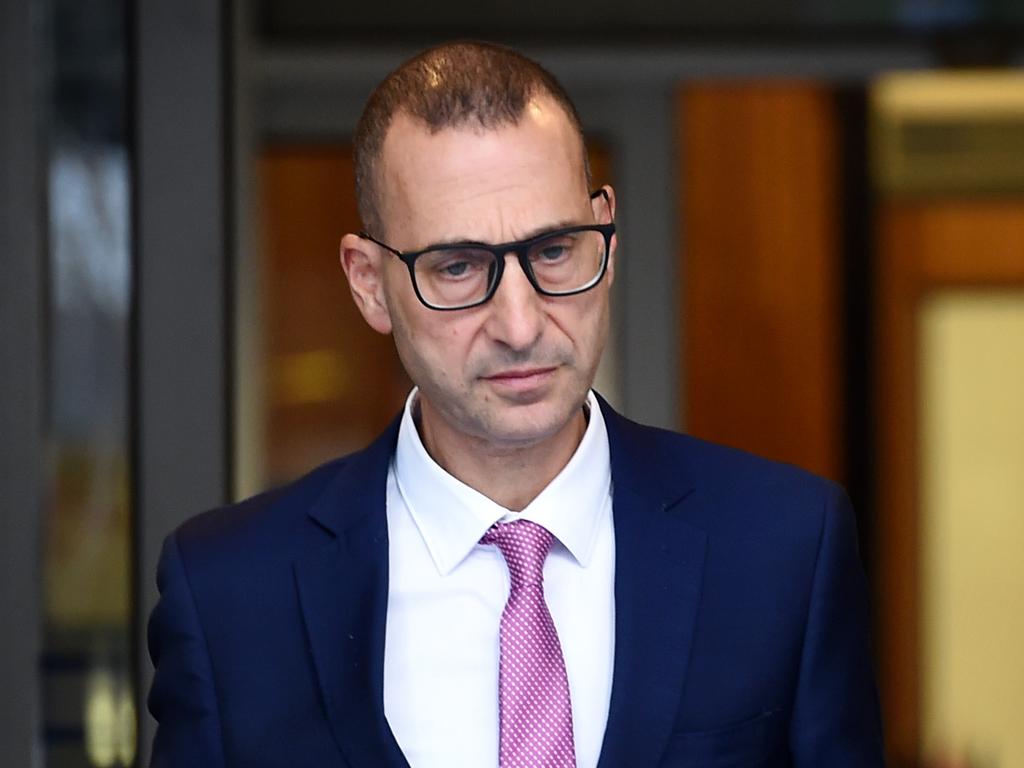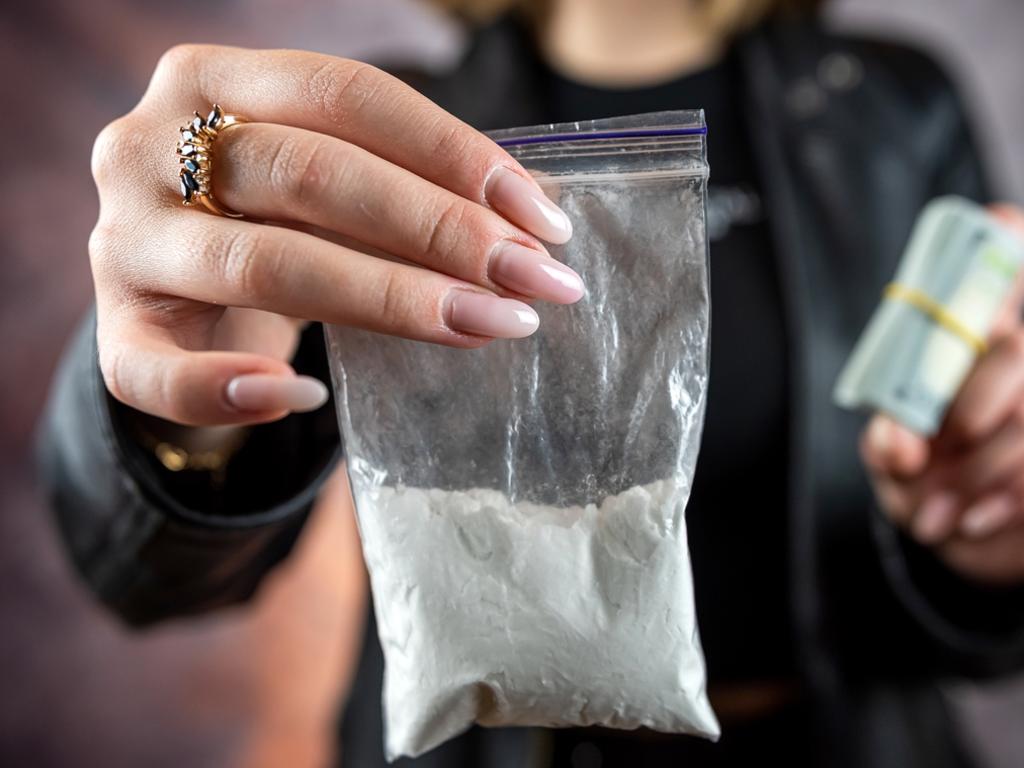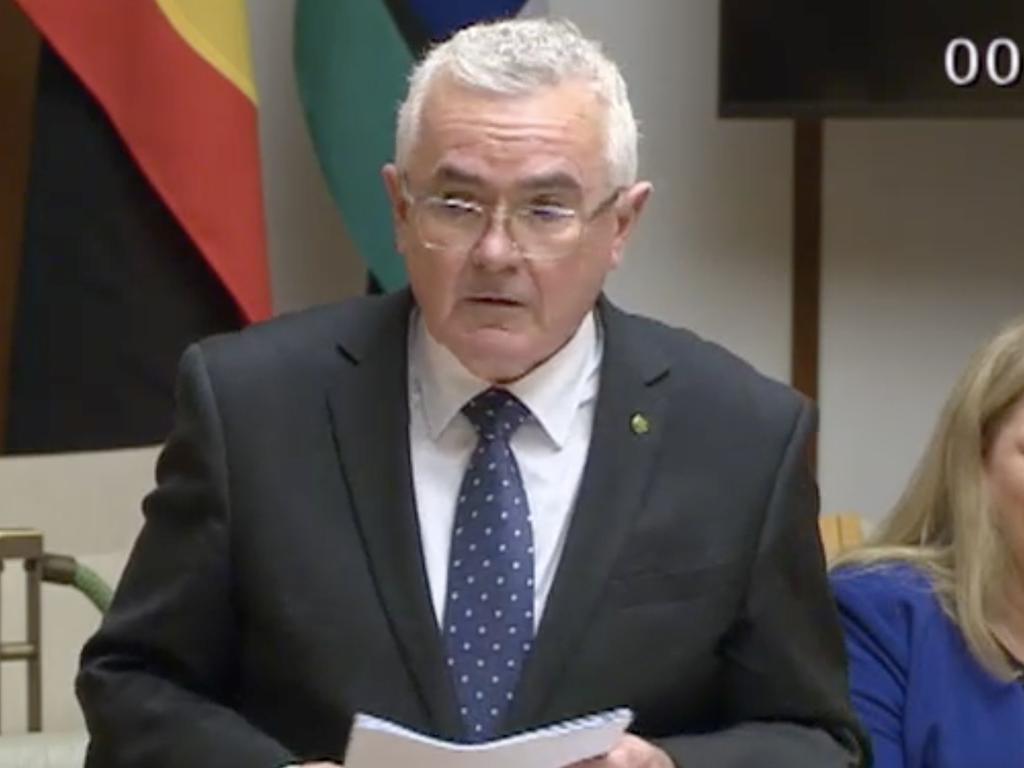Sam Landsberger: Where do you start to unravel the AFL’s drug testing web of lies?
The AFL has lost the trust of the football public after revelations players have been secretly tested — and shielded from bans — for years, writes Sam Landsberger. He asks, where do you start to unravel the lies?
The AFL has become so entangled in its own web of lies (some well-intentioned) in regards to its contentious Illicit Drugs Policy that it has again lost the trust of football fans.
The document drafted in 2005 by former AFL medical commissioners Peter Harcourt and Harry Unglik was designed to provide care and support for players suffering mental health and substance abuse problems.
“I’m proud of it,” Unglik, a current North Melbourne board member, once told the Herald Sun.
“We have — and I can’t tell you who — but we have definitely, 100 per cent saved some kids from becoming the next Ben Cousins.”
But through subterfuge the AFL has dressed it up as a punitive strikes model.
It is always about optics with the AFL.
Brand protection comes first, second and third and so the league has long pounded its chest at the fact that players were not recording drug strikes.
In 2016 the league’s own website reported: “The AFL revamped its Illicit Drugs Policy last October with tougher punishments for players who transgress”.

It was another lie.
Players were never going to be punished because those with drug problems entered the secret medical model, where they were granted immunity from strikes.
The league has been caught red-handed trying to hoodwink the public into believing players would be punished and therefore they must all be squeaky clean because nobody was getting caught.
Now we have learnt that players with drugs in their system are faking injuries to avoid game day detection from the World Anti-Doping Agency.
The AFL provides club doctors with urine tests to stop players from taking the field with drugs in their system.
The AFL has helped prevent players from breaching the WADA code but again breached trust with the public.
AFL boss Andrew Dillon claimed on Wednesday only a small handful of players had been pulled from matches to safeguard them from WADA.
But expert psychiatrists who have been involved in the IDP questioned whether Dillon should even know that confidential data.
They also said that neither he nor AFL Players’ Association boss Paul Marsh should know how many people were in the medical model.
The Herald Sun reported on Thursday that about 100 players now sat in that model – which the AFL is telling clubs is wildly exaggerated.
But six separate club medical sources with knowledge of their own backyard believed that figure was accurate.
They were confident most clubs would average four to five players in the model.
That information should be sacrosanct. It should only sit with the league’s chief medical officer, Michael Makdissi.

Mental health experts said it made little sense to exclude anyone from the model and so it should not be viewed as a damning number.
Players should be admitted after a single positive test because that could be the tip of an undiagnosed iceberg.
Why would you prevent a player from accessing support when intervention starts with a conversation?
Let’s say of the 100 players granted immunity from being in the model that 20 might have made a one-off poor decision to use drugs.
Another 50 might dabble recreationally and the remaining 30 might be those suffering serious mental health issues including a few chronic drug addicts.
If dozens of players exploit the system by faking injuries to dodge WADA bans, but 30 players in desperate need of support and care are in the hands of trained mental health expert hands then isn’t the system working?
Is that not the right price to pay for a functional model?
The goal should be to save lives — not to manage the AFL’s brand.
The problem is that the wins are never known because they remain private.
And the losses are heavily publicised. When players are caught by police or on social media taking drugs it is front page news.
So the public weighs that information against what they have been wrongly led to believe is a punitive model and think the system must be broken.
How come the likes of Bailey Smith, Elijah Hollands, Brad Crouch and now two Sydney AFLW players have served two-match illicit drug bans when nobody has ever been named and shamed for failing a test?
Several players have this week privately thanked their club doctors for their support.
Some have said they feared they would not have been alive without the medical model.
Others request they be target tested by their doctors to keep them on the straight and narrow. They are wins along the way that cannot be celebrated.
It is unrealistic to expect highly-paid footballers to make prudent judgment decisions all of the time.
Drugs are rife in society and when players consume alcohol – which is a legal substance – they, like everyone, are prone to make poor decisions.
The Illicit Drugs Policy and the WADA policy intersect only on gamedays.
WADA and Sports Integrity Australia are out to catch cheats who take performance-enhancing drugs such as anabolic steroids or EPO.
But stimulants such as cocaine have long been classified as performance enhancing on matchdays only.
There has even been an acknowledgment from WADA recently that the performance enhancing element of cocaine is minimal.
Recently the sensitivity of testing for metabolites of cocaine has become so sensitive they can pick up the smallest amount.
That is why bans have been slashed from four years to two years and now commonly to four weeks plus a rehabilitation program.

Illicit drug use is polarising and therefore most people have blind spots when assessing what is the most complex of issues.
But the issue of confidentiality shouldn’t really be an issue at all.
Here is a question to Eddie McGuire or Sam Mitchell or any other high-ranking football official who naively believes they deserve to know a player’s confidential medical information.
How can they possibly help?
Mitchell or McGuire — when he had his president hat on — are not trained or equipped to properly help or support a player with mental health or illicit drug problems.
And they are not bound by doctor-patient privilege.
For them it would simply be recording a black mark against that player’s name be it subconsciously or deliberately.
A club president or coach has the power to sack someone whereas a club doctor does not.
The care and consequence approach flips on a seesaw depending on who holds that information.
When a player in the medical model gets traded, the player’s new club doctor is informed almost immediately after the deal is finalised.
The new club would feel dudded if that information left the doctor’s hands.
Similarly, the public might feel that they have been lied to because a player has been listed as ‘out’ due to personal reasons, managed or illness when really it was because they had failed a club-sanctioned drug test.

But bad luck. The public shaming of a player for taking drugs should never, ever be allowed to happen.
Imagine the potential catastrophic fallout of a player in the grips of a drug addiction and with their mental health spiralling was made public?
Do those pushing for punishments really want a suicide on the league’s hands?
McGuire keeps ignorantly advocating for a punitive model and is not alone in calling for drug records to be shared beyond the doctor.
But AFL Doctors’ Association president Barry Rigby told the Herald Sun on Wednesday that club doctors would never support a punitive model.
On Thursday AFL players and agents were told the AFL Players’ Association also shared that view.
“Despite reports that may indicate otherwise the AFLPA won’t be walking away from the key pillars of the policy being a medical model based on the welfare of players and the importance of confidentiality,” the AFLPA said in an email seen by the Herald Sun.
“A move to a more punitive approach won’t be accepted by us.”
Thank goodness for that.
The AFL must abort its obsession with brand protection and stop pretending this policy has ever been about anything other than care, support and rehabilitation.
More Coverage
Originally published as Sam Landsberger: Where do you start to unravel the AFL’s drug testing web of lies?




